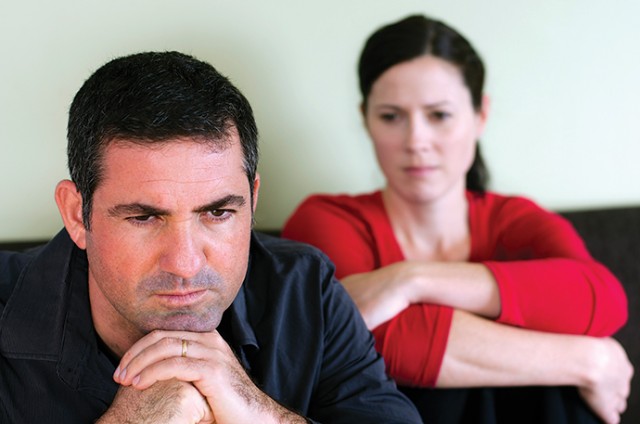One third of victims of family violence are men, but a simple Google search proved difficult to find them help – in fact, results paint quite the opposite picture.
The first link when searching ‘Penrith men’s domestic violence services’ is a men’s helpline to identify “when your actions are hurting your family”.
Penrith’s Queen of Hearts Community Foundation CEO, Michelle Ellery, said one of their roles is to reestablish trust from women that not all men are pedophiles and perpetrators.
“How can I build that trust when we aren’t actively providing services for men? I’ve hardly heard of any services for men in western Sydney,” she said.
Greg Andresen, Senior Researcher at the One in Three Campaign, said increasing amounts of evidence showed men made up more than just a minority of victims.
“While there’s a lot of specific women’s services, there were very little services for men,” he said.
Mr Andresen said the history of violence paints pretty much the same picture whether you’re male or female.
“While most men are bigger, tougher and stronger, and most women are smaller and not so powerful, it’s not always physical violence,” he said.
“It’s when one partner develops the need to control another partner, it can sometimes be physical violence, but it’s more often psychological, controlling the money and restricting access to family and friends.”
He said men suffer from a double bind where if their partner is abusing them, hitting back in defence could make them the perpetrator.
“It’s not OK to hit girls, which is great morally; unfortunately we haven’t had this message out there that it’s equally reprehensible,” he said.
“We need to break that cycle and say it’s not OK to use abuse whether you’re male or female. We’ve managed to get governments to gradually increase services and funding for male victims.”
A spokesperson for Penrith MP Stuart Ayres provided links to state-wide services for men and women via phone or Internet, but provided no local walk-in offices.
GETTING HELP
The NSW Government provides support for NSW victims of domestic and family violence: http://www.domesticviolence.nsw.gov.au/get-help/male-victims.
The Victims Access Line is for all victims of crime in NSW and provides emergency and counselling support and information. For more information please phone 1800 633 063 or go to http://www.victimsservices.justice.nsw.gov.au.
The Men’s Referral Service provides free, anonymous, confidential 24/7 telephone counselling, information and referrals. For more information go to http://www.mrs.org.au.
One in Three Campaign website provides information about male victims of family violence research and statistics at http://www.oneinthree.com.au.
Mensline Australia is a generic helpline for all men and all relationship issues providing instant, confidential, professional male friendly counselling. For more information call 1300 789 978 or go to http://www.mensline.org.au.
1800 RESPECT is a 24/7 national sexual assault, family and domestic violence counselling line for any Australian who has experienced, or is at risk of, family and domestic violence and sexual assault. Call 1800 737 732 or visit http://www.1800respect.org.au.
Parent Line provides 24/7 parenting support for families coping with domestic violence. Phone 1300 1300 52 or visit http://www.parentline.org.au.
Dads in Distress is a national leader in peer support for separated parents at risk of crisis and trauma. Helpline via 1300 853 437 operates Monday to Friday 9am – 5pm or visit http://www.dadsindistress.asn.au.
The Safe Relationships Project can help you with court and AVOs and provide free domestic violence court assistance for people in same sex relationships, transgender and transsexual people and intersex people. Call 1800 244 481 or visit http://www.iclc.org.au/srp.

